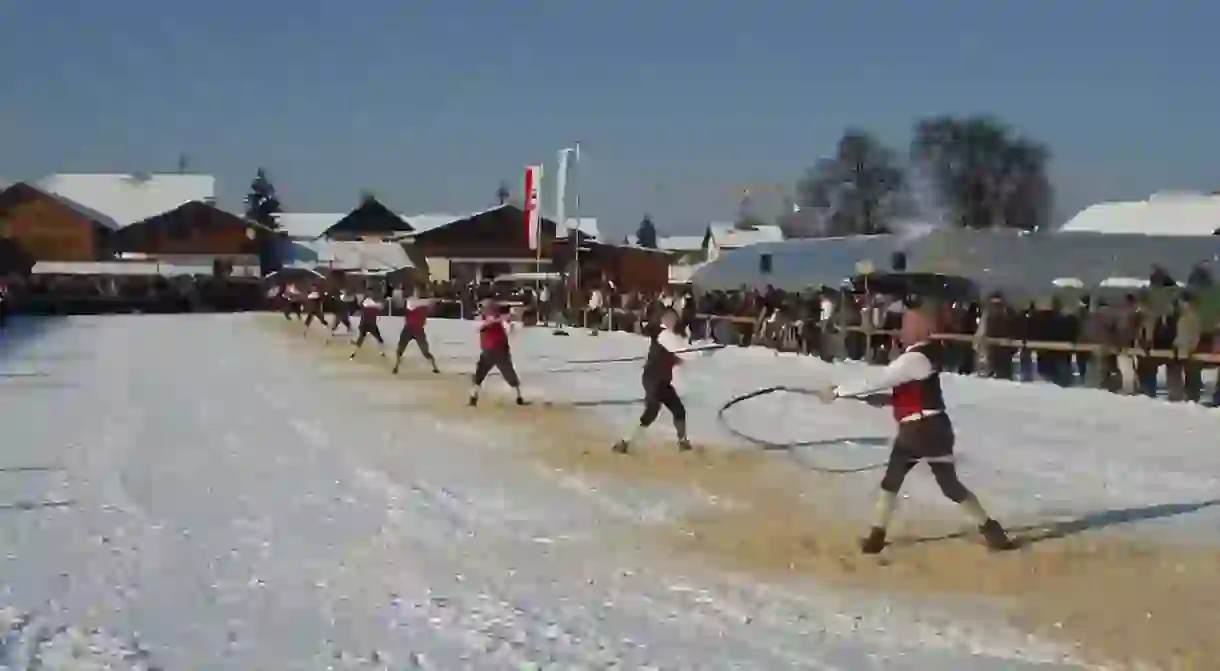Aperschnalzen Whip-Cracking: Everything You Need to Know

Aperschnalzen is a southern German and Austrian tradition that is steeped in history. Originating from the Bavarian Alpine foothills and in the Salzburg region, this pre-Christian custom of whip-cracking was revived in the first half of the 20th century. The word Aper means ‘an area free of snow’ in the Bavarian language, and schnalzen refers to the tradition of rhythmic whipping. Here’s everything you need to know about the German and Austrian tradition of Aperschnalzen.
A tradition to drive away the snow
The tradition of Aperschnalzen dates all the way back to 1730 and it’s thought to have pagan roots. While there are different opinions about the reasoning behind it, the most common is that it is intended to drive the winter away. Taking place at the end of January and in early February, it is performed in small odd-numbered groups, or Passen in Bavarian. By loudly cracking their whips, the Passen are driving out the evil powers of darkness and cold. However, some farmers, in turn, believed that the tradition brought fertility to the soil, as the loud whipping rustled the slumbering earth that was hidden deep under the snow.

How it works
The tradition of Aperschnalzen involves the rhythmic snapping and cracking of a small (usually about four metres or 13 feet long) whip called a Goaßl in Austro-Bavarian. The teams are usually comprised of nine to 11 members, and the smallest team member begins the procession of whipping. Standing in a long line, they wait for the call ‘Aufdrahd, oane, zwoa, drei – dahin geht’s‘, meaning ‘Untwist, one two, three – let’s go.’ Then the Passen crack their whips precisely and with a certain rhythm, ideally creating a loud cracking noise. One after another, each member will make their whip crack around nine to 11 times. If it sounds difficult, that’s because it is, and many clubs and teams train for years before daring to compete in the annual competitions in the region.
Modern-day tournaments
Nowadays, this tradition is performed in competitions and clubs, usually in the lead-up to carnival season. Once a year, one week before Carnival Sunday, the whip-crackers from Bavaria and Salzburg meet to compete. This is when the Aperschnalzen season reaches its peak and comes to a close at the Rupertigau–Preisschnalze tournament. Every three years, this tournament is held in the Salzburg region; otherwise, it’s held in Bavaria. More than 100 Passen participate annually, celebrating the long, rich and quirky history of this region and and preservating its customs.













